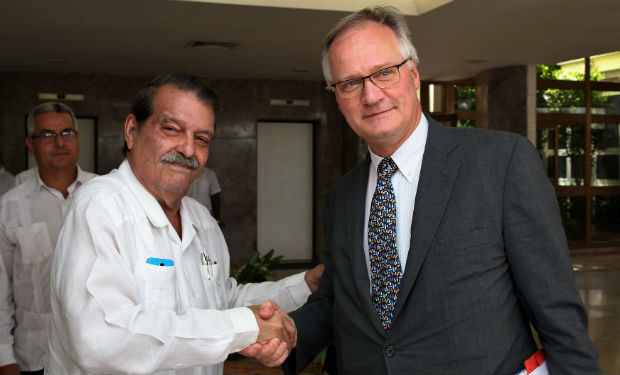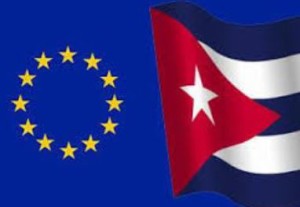
Le Monde: It’s all about status and trade
“The coincidence was not fortuitous,” begins an article Wednesday in the influential French daily Le Monde. “On March 3, the Elysée Palace announced the visit of François Hollande to Cuba on May 11, at the same time that the European Union resumes — Wednesday in Havana — a dialogue with the Cuban government.
“France has pleaded for a reversal of the EU’s ‘common position,’ which conditioned relations with the regime to the evolution of freedoms.”
In an instant analysis, Le Monde says that “the changes adopted by [Hollande’s] counterpart, Raúl Castro, are not sufficient to explain the opportunity for the trip, even though they might justify it. The thaw between Havana and Washington, announced on Dec. 17, 2014, sounded the alarm.
“European businesses, especially French and Spanish, have had a long advantage on the island, made easy by the U.S. embargo against Cuba. This permanence will soon face the concurrence of the United States.”
The article then posits that the EU in general, and France in particular, are moving fast so as not to lose their cutting edge to the Americans. The rest of the article follows. The translator’s clarifications appear [in brackets.]
“From the side of the European diplomacy, the rapprochement has accelerated because of a normalization of relations, suspended since 2003, and the signing of an agreement within a time frame not yet set. On Wednesday and Thursday, the EU delegation to Havana should address the issues of trade and ‘political dialogue,’ a formula masking the difficult debate on human rights.
“Since 1996, the Europeans have clung, more or less, to a ‘common position’ that conditions any rapprochement to the Castro regime’s advances on freedoms. They now suggest a more vague formula — envisioned as a ‘legal framework’ — that would allow progress in several areas without blocking the issue of human rights.
“The EU wants Havana to ratify two United Nations covenants on individual and collective rights signed in 2008 but still not respected.
“‘The common position was an aberration,’ says one diplomat in Brussels, stressing that it wasn’t applied even to the bloodiest dictatorships. Discussion is also expected to pave the way for a trip by the High Representative, Federica Mogherini, that would seal the rapprochement with Cuba.
“While Sweden, the Netherlands and Poland have long expressed reservations, Spain and France have done everything possible to resume the dialogue.
“Since 2008, Brussels has granted the Cubans humanitarian and development aid amounting to 98 million euros [$108.54+ million]. That’s a modest sum, considering the hopes of developing a strong economic relationship with Cuba, to whom the EU is the second largest trading partner, with a trade volume of 4 billion euros [$4.43+ billion].
“Europeans also make up half of the contingent of tourists who each year discover the Cuban beaches.
“François Hollande’s visit will be an opportunity to set to music Europe’s new provisions before the expected landing of the Americans. In the name of ‘the birthplace of human rights,’ will the president be able to synthesize the ‘economic diplomacy’ dear to his [foreign] minister Laurent Fabius and the defense of freedoms, which are nonexistent in Cuba?”
[Top negotiators in Havana today were Abelardo Moreno of Cuba, left, and Christian Leffler of the European Union. Shown in photo above.]


